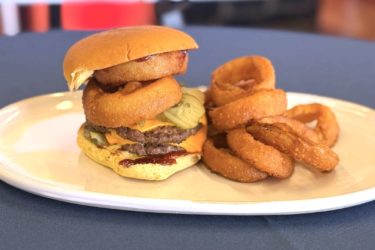The Local newsletter is your free, daily guide to life in Colorado. For locals, by locals.
For the past few weeks, we’ve been living in an uncharted territory of thirst and uncertainty, particularly when it comes to Colorado’s brave new world of to-go alcohol sales.
To give bars and restaurants a fighting chance for survival during the mandated dine-in and drink-in closures, Governor Jared Polis has allowed operators to sell alcohol for carryout and delivery, so long as it’s sold with food and distributed in a sealed container. Regulations around the sale of growlers and crowlers is a bit murkier, but sealed bottles of wine and beer, as well as cocktails in lidded plastic cups or larger secured bottles, have been deemed A-OK. Considering that alcohol typically makes up about 20 to 30 percent of a restaurant’s total sales, this new allowance has the potential to mean life or death for the hurting industry.
So, are these new carryout and delivery alcohol sales really helping? We asked a group of restaurant, bar, food hall, distillery, and brewery owners whether the liberal new provisions are making a difference. The answer, it seems, depends on the type of drink the establishment is known for.
“It’s not too hyperbolic to say it has made all the difference in the world and has helped the Rio through this crisis,” says Rio Grande Mexican Restaurant CEO Jason Barrett. The Rio, as you probably know (or may have forgotten based on how much you drank there), is famous for its big, potent margaritas; its to-go Rio Quarantine Survival Kits, which contain everything you need to make six classic Rio margs, has been a big seller.
Elliot Strathmann, co-owner of the Highland restaurant Spuntino—well-known for its cocktail and wine lists and impressive amari collection—agrees. “The to-go option for alcohol sales has been essential for us flipping our model completely upside down,” he says. “The option to sell wine and spirits based on these new, temporary rules has made our commitment to moving forward safely with our entire full-time staff—no layoffs, no benefit cuts, full sick pay—viable financially. We wouldn’t be doing this the same way without it.”
In fact, Spuntino has expanded its hours during the coronavirus shutdown, now opening at 11:30 a.m. each day to give employees enough hours at work. Strathmann whittled down the cocktail list to a roster of favorites that can easily be made by anyone on staff. So, yes, you can get the Spuntino negroni, which is made even better by Strathmann’s house-made negroni gummy bear garnish, for lunch. And it’s just as good—and has been just as popular—in to-go cup form.
At Dairy Block’s Milk Market, a typically bustling food and drink hall in LoDo run by local restaurateur Frank Bonanno, drinks were a big part of the experience, with three of the 16 stalls in the market pouring something alcoholic. Now, the majority of Milk Market’s business comes from grab-and-go shopping, as many of its market-style food products, like pasta, sauce, and pastries, are available for pick up alongside staples like toilet paper and milk. Bonanno says beer and wine sales have been tough in the new to-go model, but mixed drinks, like wine bottles filled with fresh margaritas and individual servings of mezcal Manhattans, have been very popular. “We can’t even keep them on the shelves,” Bonanno says of the bottled cocktails. “We sold out yesterday. Those have been the most popular—they’re easy to grab while you’re shopping.”
To-go sales at underground cocktail bar Run for the Roses started off very strong but have slowed down as the initial novelty has worn off. Owner Steven Waters says sales from palomas and a banana cognac old fashioned kept their staff paid for two weeks. “Although it’s not what they would normally be making with tips, it is far greater than what unemployment would pay them,” he says.
While most restaurant owners we spoke with said to-go cocktail sales have been helpful, it’s been less so for beer, and especially poor for wine. The reason is most likely due to the fact that that same $30 restaurant bottle of wine can be purchased at your local liquor store for a lot less. Same with beer. A well-made cocktail, however, with fresh-squeezed juice, house-made syrups, and fancy liquors, is going to be a lot harder to re-create at home.
Joshua Horowitz, owner of East Side Kosher Deli, says his to-go wine sales haven’t had much of an effect on his shrinking bottom line. Bonanno agrees, citing the lower prices that liquor stores pay for the same products. “Had they shut liquor stores down and we were the only avenue, that would be a game changer,” Bonanno says.
Spuntino seems to have found a wine work-around with its Wine Quarantine Wednesdays. Every other week, the team curates a flight of favorite wines decanted into small bottles for a DIY wine-tasting dinner party of sorts. Diners love connecting with the Spuntino team, but Strathmann admits that it’s a lot of work and they’ve had to reduce their pricing to better compete with liquor stores. “The logistics of doing this have been absolutely nuts, but entirely worth it for how popular it’s become for our guests,” he says.
At beer-centric pizza joint Hops & Pie, co-owner Drew Watson says the new to-go sales haven’t hurt, but because they can’t charge their normal beer prices, the margins are far less favorable. To keep things fresh and fun for his customers, he changes up kegs each week, focusing on local brands like WeldWerks Brewing, Cannonball Creek Brewing, and Cerebral Brewing.
Things are a little different for breweries and distilleries, which are used to selling their bottles and cans to-go and delivering to local liquor stores and restaurants. But the bump from new delivery sales (for breweries) and to-go cocktail kits (for distilleries with tasting rooms) has helped. At Ratio Beerworks, owners Jason zumBrunnen and Scott Kaplan say that the additional delivery revenue has kept their skeleton crew of employees afloat, and, as an unexpected bonus, the closures prompted them to finally start producing six-pack cans, which have been popular with Ratio fans.
Scott Yeates, founder of Mythology Distillery, says the logistics of transforming their tasting room bar into a to-go operation has been easy compared to the process of switching gears from gin to hand sanitizer production, as it did at the onset of the coronavirus crisis. Mythology’s to-go cocktail kits, which include a bottle of spirits and the syrups, tonics, and garnishes to make 12 to 16 cocktails at home, have helped make up some of the lost revenue from the closure of the tasting room.
All of the business owners said they’d like to see to-go alcohol sales continue into the post-coronavirus world, especially during what’s bound to be a long and gradual re-opening process. “It could be a great way to generate additional revenue outside of regular service hours, give guests easier access to some of their favorite drinks, and provide something for people on their own schedules and in their own environments,” Waters says.
With uncertainty shrouding pretty much everything to do with our normal daily existences right now, no one can predict whether these lax alcohol laws will last. For now, enjoy all of the perfectly mixed margaritas and Manhattans you can.








